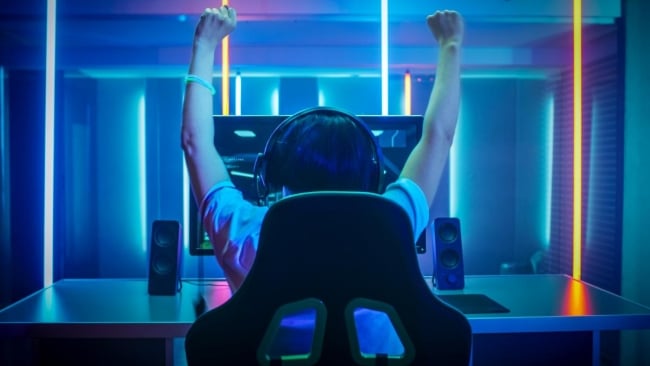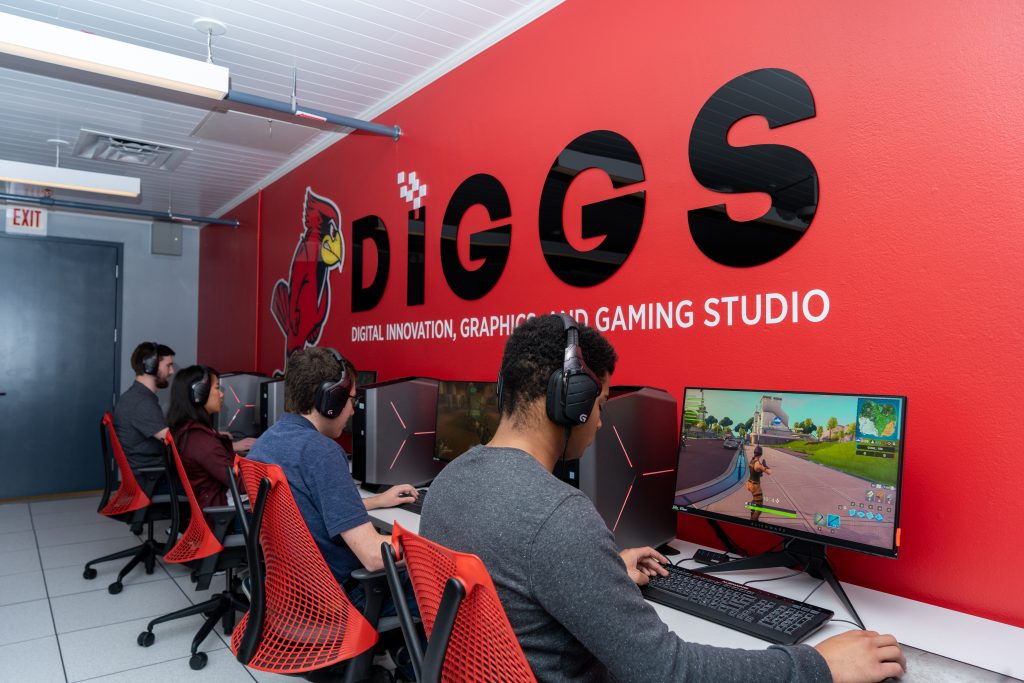You have /5 articles left.
Sign up for a free account or log in.

Istockphoto.com/gorodenkoff
CHICAGO -- Facilities for competitive online gaming are fast becoming a must-have on campus, attendees at the 2019 Educause conference learned yesterday.
In a session on the rise of esports in higher education, dozens of campus IT leaders indicated they are thinking about how to introduce esports at their institutions.
“This is not just about gaming,” said Jeanne Weber, senior higher education strategist at Dell Technologies. Engaging students in esports can help them build critical thinking skills, encourage teamwork and innovation, and promote self-directed learning, she said.
But there is another important reason college administrators are thinking about esports: student recruitment.
“There’s going to be a lot more kids looking at esports as an important criterion for college,” said Todd Harris, president of esports production company Skillshot Media. There are already 15 states that recognize esports as a high school varsity sport, and that number will grow, he said.
Over 100 high schools in Illinois now offer esports, said Rob Bailey, director of information technology in the division of student affairs at Illinois State University, a public institution in Normal, Ill. “There is huge interest from students coming in -- enrollment is a big piece of this,” he said.
Illinois State University has 12 competitive esports teams, playing games such as Rocket League, League of Legends and Overwatch.
Initially, students were given a space in the library to practice, said Bailey. But it wasn’t practical for students to haul their gaming PCs in and out of this space. He said students now have a dedicated space with computers in a former data center that is open from 4 p.m. to 10 p.m. A varsity program that would be sponsored by the university is on the horizon, he said. “Students are really driving that.”

Jackie Stampalia, director of client information services at the Rensselaer Polytechnic Institute, a private research university in Troy, N.Y., said prospective students expect the university to be engaged in esports.
“RPI is a tech school. We have a lot of students who are really interested in gaming,” she said.
RPI has offered video game design classes for more than a decade, but the push to support esports came from students, said Stampalia. RPI’s esports club meets in a computer lab, but the university is planning to create a dedicated esports space in the student union.
The gaming industry is “bigger than the movie and music industry combined,” said Harris. Going to a professional esports event is like "the best sports event you’ve ever been to mixed with an EDM concert," he said, referring to an electronic dance music concert.
Not every institution needs a 500-seat esports arena like the one Full Sail University in Florida has built, said Harris. It’s fine to start with modest facilities and ramp up.
“The big thing is to avoid Wi-Fi at all costs. You don’t want latency; you need wired computers.”
But even modest facilities should look presentable. Prospective students interested in esports are “all about the aesthetics,” Bailey said. They are looking for “cool graphics, tricked-out lights, great gaming chairs -- it’s important to keep that in mind.”
IT staff might be approached about supporting an esports team, but student affairs should also be involved, said Stampalia. Institutions might want to limit how much students can play and regularly check their GPAs to ensure they are still devoting adequate time to their studies. Colleges administrators may also want to think carefully about which games they allow students to play. At the high school varsity level, for example, students don’t play Fortnite, as it involves shooting virtual guns.
There are a surprising number of career paths that could stem from esports, said Harris. At Georgia State University, 200 people recently joined a new esports club, but the majority didn’t want to be professional players -- they wanted to get involved in announcing, marketing or production.
Because esports is still in its infancy, there is little regulation of esports teams, said Stampalia.
“The NCAA hasn’t really picked up on it -- having regulations and standards will be very important to move it forward,” she said.
Bailey said esports teams could eventually become as much a part of an institution’s identity as its football team.
"There are a lot of schools trying to get into esports, and it is a complex landscape," he said. "But it’s only going to grow."




